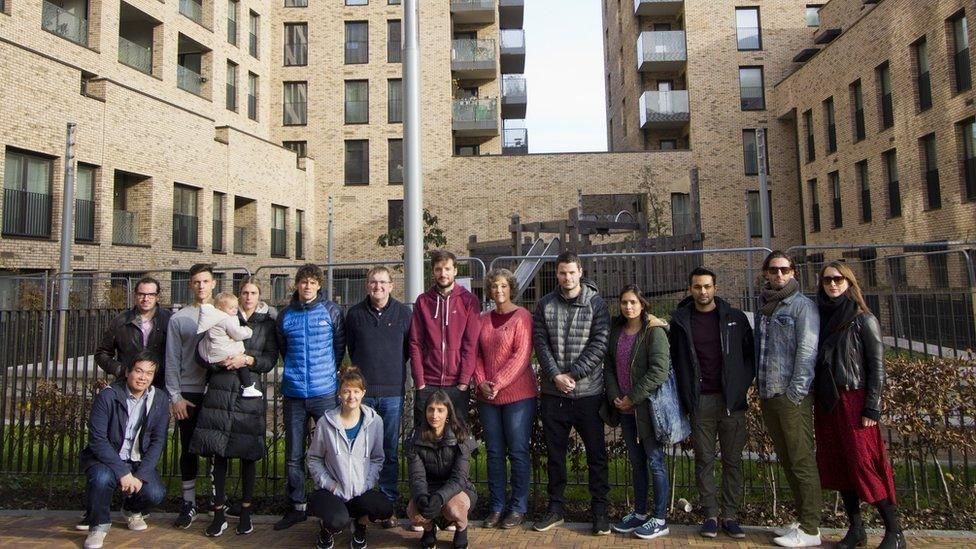Cladding: Fire safety protest held over 'time bomb' homes
- Published
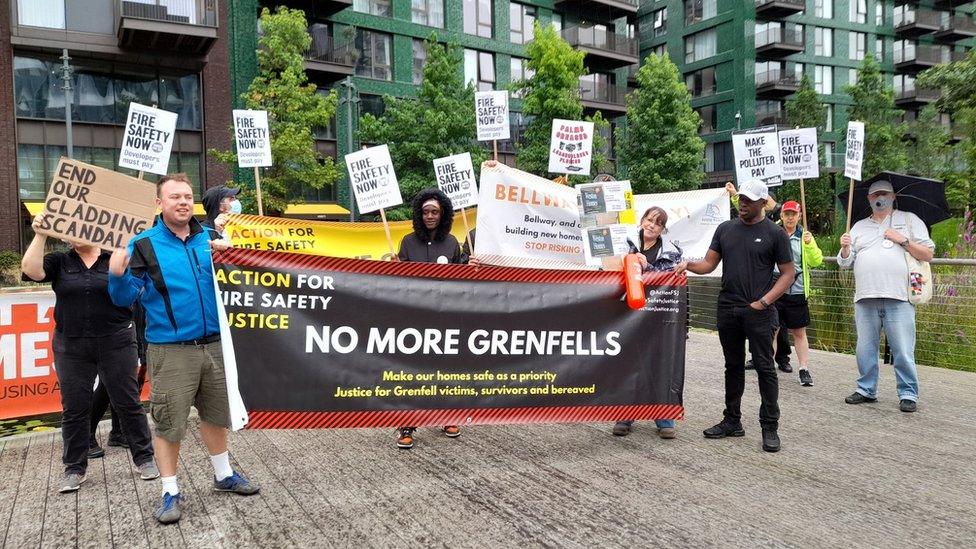
Protesters gathered outside the Nine Elms development in London
Protesters worried their homes are "time bombs" are demanding developers take remedial action to make the properties safe.
Residents and leaseholders of homes with combustible cladding gathered at the Nine Elms development, south-west London and Salford Quays, Manchester.
Affected leaseholders, tenants and the group Action for Fire Safety Justice say people are "living in fear".
Developers say they are committed to making people feel safe in their homes.
Protesters singled out developers Barratt, Bellway, Berkeley, Ballymore and Taylor Wimpey, which all have buildings on the Nine Elms site.
Action for Fire Safety Justice wants remedial work carried out quickly to avoid anther Grenfell fire disaster and for residents and leaseholders to be compensated for money they have had to spend.
Rebecca Fairclough, co-leader of Manchester Cladiators which organised the Salford protest, said: "The government is still not doing anywhere near enough to finally bring an end to this living nightmare. We are physically, financially and mentally trapped in unsafe homes.
"We need the government to finally and fairly ensure there is a solution that truly protects the innocent victims of this crisis."
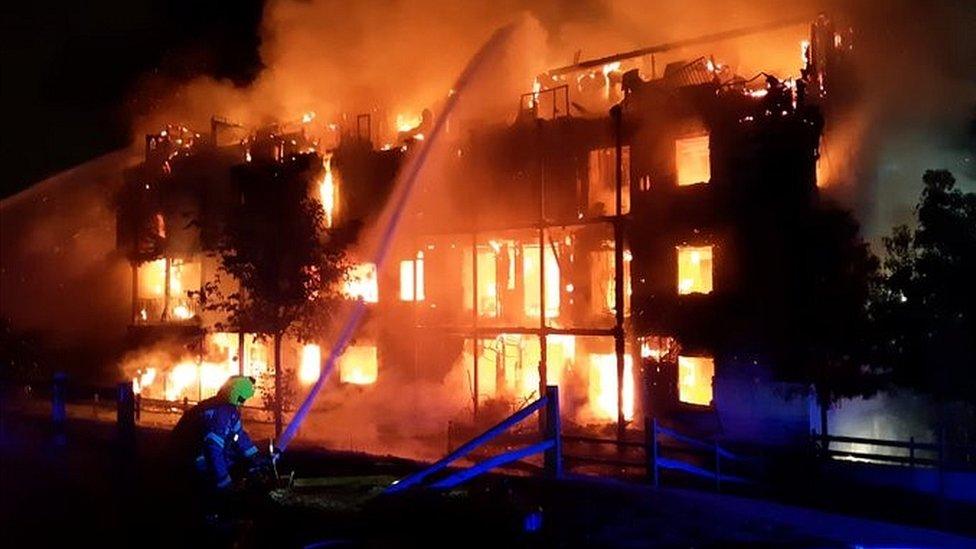
A four-storey block of flats was destroyed in September's fire on the Hamptons estate
Adeline Tsang, a retired nurse who lives at Royal Artillery Quays, a development in Thamesmead in south-east London built by Barratt, says she was forced back to work to cover costs associated with her flat.
She says she now has nightmares about her home catching fire after the building was found to have fire safety issues.
"We are living in a time bomb, We feel helpless," she said.
"I had a very successful career. Now my savings have been getting a hammering. I wanted to retire with my nest egg but now it's all gone. I am worried I will be bankrupt and homeless when I am not able to pay, on top of my mental health."
A spokesperson for Barratt said it understood the "complex issues surrounding fire safety guidance are causing distress for affected homeowners and leaseholders". It said the company was working with building owners and management companies to address the issues.
Natalie Carter, who lives at New Providence Wharf in Poplar, east London - a development by Ballymore that caught fire in May - says she lives with near-constant worry.
She said: "If it were to happen again, which of course it could, and if it were to happen in the night, people would just die, there's no two ways about it."
A spokesman for Ballymore said it was "working quickly to carry out remedial works across our portfolio". The company said work being done at New Providence Wharf would be at no cost to leaseholders.
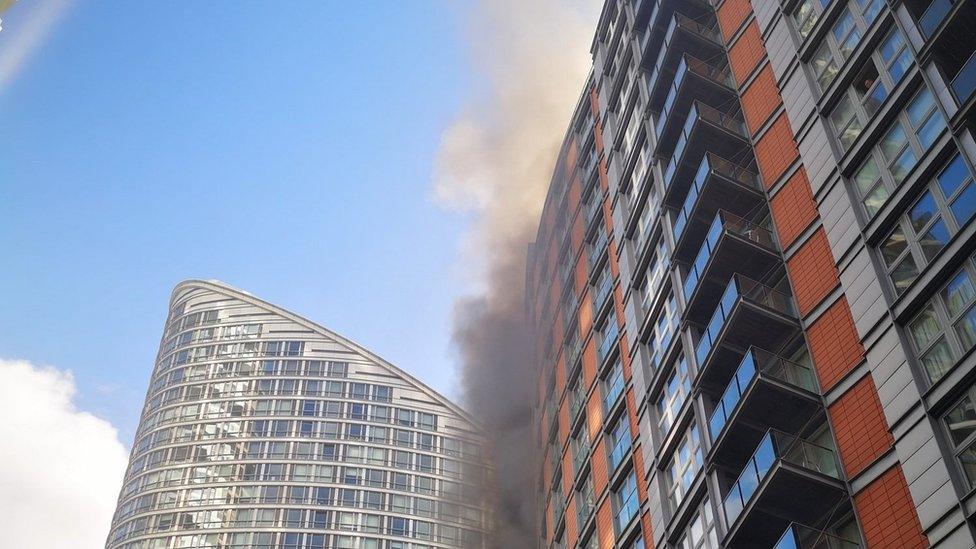
The fire at New Providence Wharf has left residents worried about their safety
A fire two years ago at Richmond House in Worcester Park, south-west London, damaged blocks of flats beyond repair.
Andy Roe, commissioner of the London Fire Brigade, told the London Assembly it was "entirely due to problems with internal compartmentation and poor standards of construction".
The property developer responsible for the housing, Berkeley, has been contacted for comment.
Another resident, who lives at Bellway's Caspian Quarter in Barking, east London, which was identified as having fire safety defects, said: "It's a living nightmare - I feel cheated."
"I feel like I'm being punished for trying to get my foot on the property ladder," they said.
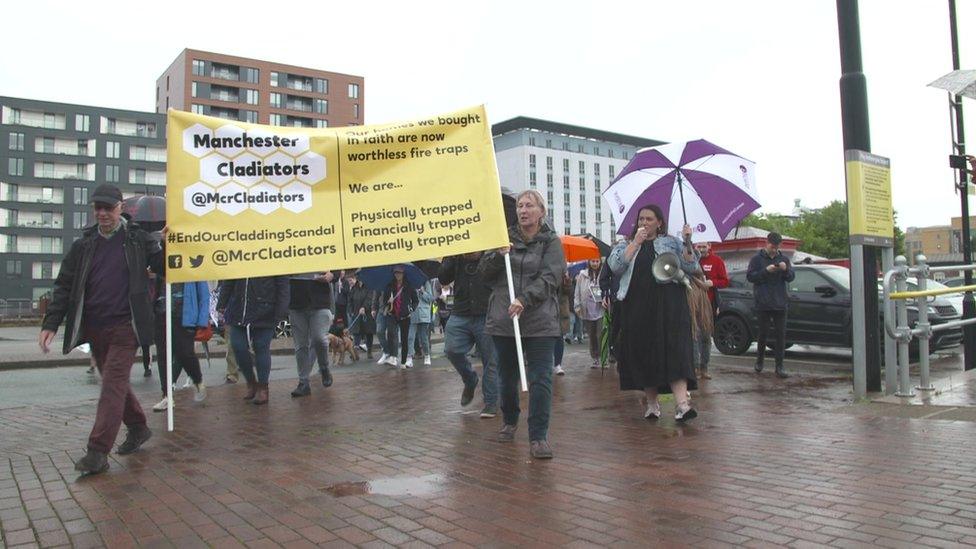
Protesters marched through Salford Quays
A spokesperson for Bellway Homes said although the company was not the current freeholder it "understands that at the heart of this issue is the need to make sure people feel safe in their homes".
The spokesperson said surveys were being undertaken at the Caspian Quarter at no extra cost to residents.
Taylor Wimpey, which was also named by protesters, said customer safety was "of paramount importance" and that money had been put aside to bring the buildings it had built over the past 20 years up to current standards.
A Ministry for Housing, Community and Local Government spokesperson said: "We are spending over £5bn to fund the replacement of unsafe cladding.
"We've been clear throughout that owners and industry should make buildings safe without passing costs on to leaseholders.
"Our new measures will introduce a legal requirement for owners of high-rise buildings to prove they have tried all routes to cover the cost of fixing their buildings."
- Published1 June 2021

- Published2 March 2021
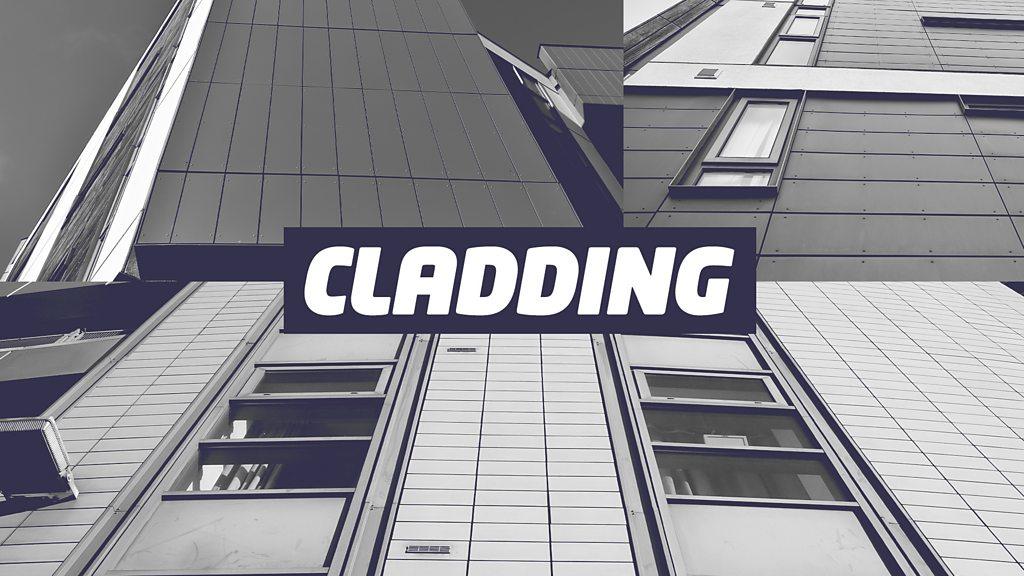
- Published1 February 2021
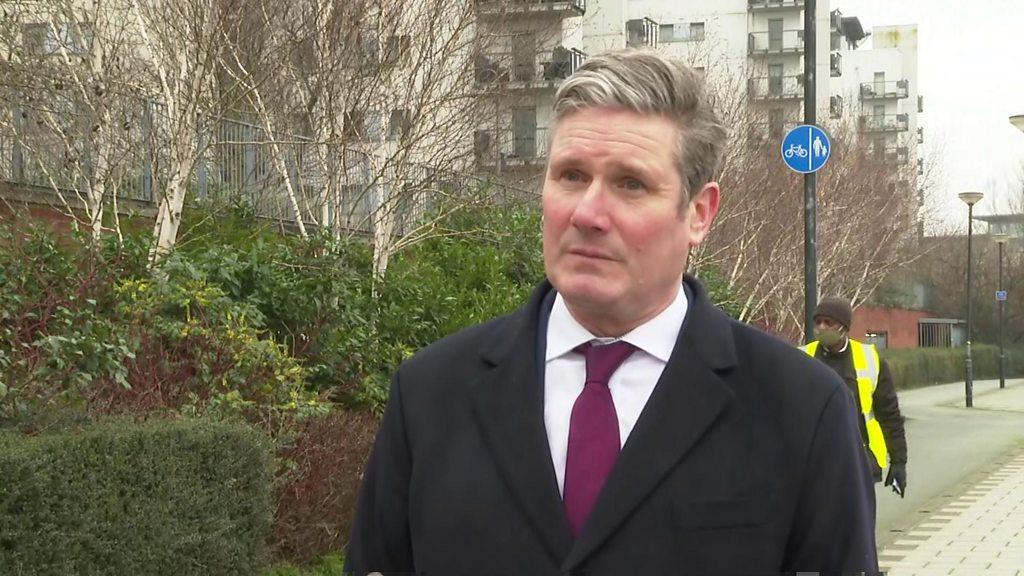
- Published22 January 2021
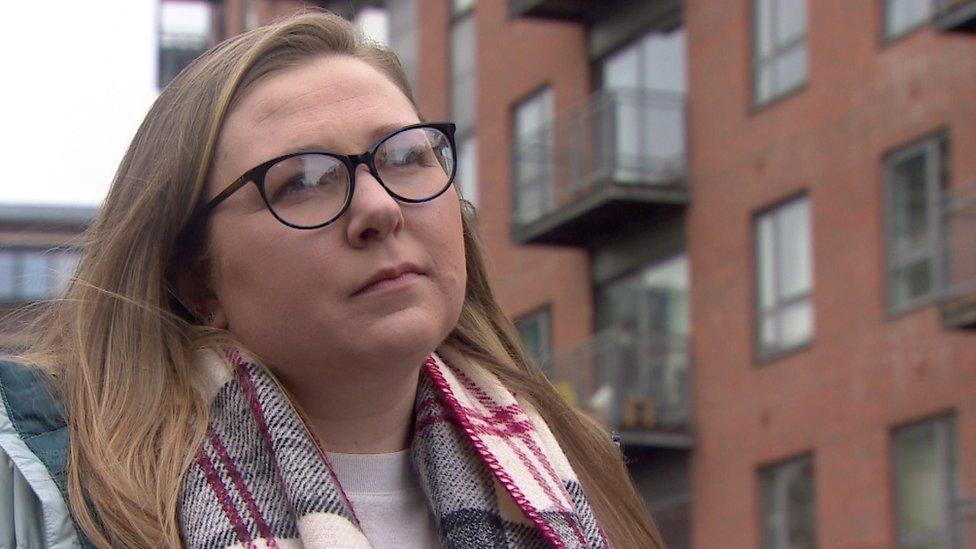
- Published24 October 2019

- Published15 November 2019
